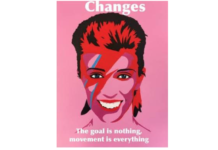Late in 2019 TV One news ran an item on sexual crimes, stressing how few complaints result in conviction. Survivor “Hannah”, through a dimmed lens, said her abuser was duly convicted but called the system “traumatic”.
No doubt that’s true. However, I wonder what Hannah meant when she added, “They don’t really view you as a person; it’s like you’re just a piece of evidence.” Nowadays police follow a manual specifying how to treat sexual complainants with dignity, so if anyone reporting a sexual crime is unfairly treated it can really only be because a rogue investigator discards the rule book, which is surely unlikely.
So Hannah’s problem isn’t with the people but the process. Yet anyone involved in a criminal case is primarily a piece of evidence, and a contrasting piece resides with the defendant, who may be the real victim. Hannah might instead celebrate the system she criticises, which did after all allow her testimony to convict an abuser. Police and lawyers should treat any complainant with respect but also put emotions aside and unearth facts. Perhaps Hannah objected to questions designed to elicit those facts. Did she expect simply to be taken at her word? It’s a small but fatal step from the compassionate “listen to the complainant” to the unjust “believe the victim”.
The Sexual Violence Bill – just passed – ostensibly aims to smooth the way for complainants, but at a terrible cost to defendants. It seems to presume all suspects are guilty and judges the legal system according to the number of convictions it produces. Let’s make sexual investigations and trials less formidable, but for both protagonists. Suspects are under unbearable stress as well; in fact, probably more because they rightly fear catastrophic consequences. An accuser incurs no costs and will remain anonymous no matter what the outcome. A suspect knows that if jurors decide he’s guilty – which they may do based only on his accuser’s uncorroborated testimony – he’ll lose freedom, savings, reputation, career. Even if acquitted, he’ll have suffered terribly. He may receive support from his defence counsel, but nothing whatsoever from the “system”.
Questions asked during an investigation and in court are said to “re-victimise” a sexual complainant. No one should downplay the stress of retelling intimate detail to strangers. The solemn need for justice means the courtroom will always be an intimidating place, but much is already done to soften the process. The complainant is shown the courtroom before the trial to put her at ease in this intimidating environment. She can give videoed evidence remotely, and during the trial she can be screened from the defendant. She and her chosen support person are even paid to attend. In contrast, suspects are supposed to be macho enough just to tough it out.
When the freedom of a defendant is at stake, no lawyer should apologise for asking complainants some challenging questions. They are already treated with as much respect in the courtroom as such a personal and delicate crime allows. In any case, the main effect of browbeating the complainant with vicious questioning would be to win the jury’s sympathy for her, which no defence lawyer would want to do. Imagine the justified fear and fury of an innocent defendant if court protocol prevents his lawyer from asking those unsettling questions which Hannah apparently found so dehumanising.
The just-passed Sexual Violence Bill shows that the system which Hannah disparages will continue to treat suspects far, far worse than it treated her. Progress can come in tiny steps. Let’s start by thinking a little harder about what victim means.
Peter Joyce is a retired teacher. He edits the website blackstonesdrum.com and his book Dry Ice details his experiences in facing the allegation against him.





Crimen exceptum
This travesty and erosion of the right to a fair hearing has been a long time brewing.
For decades now the media have acquiesced into using advocacy terms like ‘victim’ instead of complainant.
The right to remain silent has already suffered from a savaging in recent years, along with erosion of access to legal aid.
The primary logical outcome to all this will be a greater number of miscarriages of justice. Maybe it’ll all get fixed again in another 30+ years, until then, we’ll suffer.
THAT’S ABOUT THE SIZE OF IT
Comments are closed.